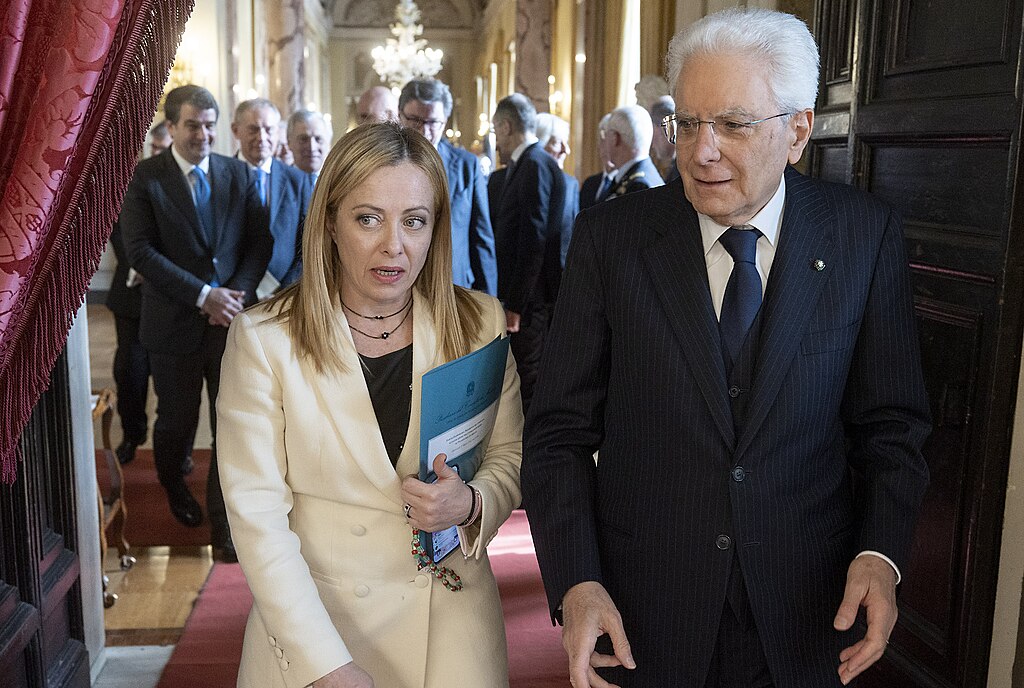Sexism and misogyny: Italy’s centuries old problem

Giorgia Meloni meeting with Italian President Sergio Mattarella and other male members of the Italian government
Jacob Sagers – Italian Prime Minister Giorgia Meloni’s breakup with her long-term partner – Andrea Giambruno – after videos released of him making lewd comments and sexually degrading jokes to female colleagues shook Italy. Sexism and misogyny are persistent problems throughout Italian society, with a survey reporting that over 50% of Italian women reporting sexual harassment or assault by age 19. Unfortunately, this behavior is seen as the norm, widely excused, and has wide effects on Italian society. Journalist Silvia Grilli reports Giambruno’s comments were used: “…only and exclusively to put her [Giambruno’s colleague] in her place” and as a tool for male superiority in the workplace. To understand Italy’s problem, its past with the Roman Empire and Roman Catholic Church must be examined.
Italian national identity, or the way people view themselves and their attachment to their country, traces its roots back to the Roman Empire. During the time of Rome, paterfamilias became the country’s standard, with the oldest male in a household effectively running and holding autocratic authority over family members. This tradition, and the related culture of machismo, remained after the empire’s fall and continued with the Roman Catholic Church to present day. Most Italians identify as Catholic, resulting in the church’s emphasis on patriarchal leadership and opposing women’s equality movements in the 20th century supporting view that women are inferior to men. The Catholic Church’s role as a non-state actor, or an organization that exerts influence over politics and is not affiliated with a country, is powerful and has translated into political and cultural influence. Sexism is embedded into Italian society and faces staunch opposition for its removal. Past presidents, specifically Silvio Berlusconi, exacerbated the issue by publicly boasting his sexual exploits and broadcasting scantily clad women across the media channels he owned.
Sexual harassment is not new but Giorgia Meloni’s role as the country’s first female prime minister has thrusted her into a feminist role, despite her reluctance to accept it amid her conservative political party, and shape Italy’s future. She has supported policy to increase female participation in the workplace, Italy has the lowest among G7 states, to spur economic growth and birthrates. Whether Meloni’s policies and her hesitance to explicitly promote women’s rights and politics will spur change, Italy must shatter political, cultural, and religious barriers to eradicate its sexist and problematic past. Italy’s situation serves as a reminder to other Western countries about erasing sexism and misogyny towards women, or they may face a similar fate.
Picture Credit: Photo distributed under Public Domain from the Italian Government. Source

